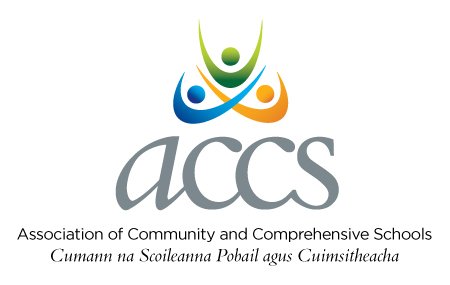ACCS Students to the fore at Bí Cineálta launch
ACCS Students were in attendance at the launch of the new ‘Bí Cineálta’ procedures in Dublin last week
Muireann O'Donovan and Giulia Moretto from Kinsale Community School and Ashvita Harolikar and Sarah Jones from Portmarnock Community School were delighted to join Minister for Education, Norma Foley T.D. at Government Buildings to mark the publication of Bí Cineálta Procedures to Prevent and Address Bullying Behaviour in Primary and Post-Primary Schools. The Minister thanked the students for their work on the materials. Unfortunately Izzy Tuohy and Adriana Valuodzaite from Portumna Community School were unable to attend on the day due to other commitments.
.
Sarah Jones, Ashvita Harolikar, Minister for Education, Norma Foley T.D, Giulia Moretto, and Muireann O'Donovan
The ‘Bí Cineálta’ procedures are centred on a child rights-based approach and support a partnership approach where all members of the school community work together to prevent and address bullying behaviour. The 2013 procedures have been updated to take account of gender identity bullying, cyberbullying, racist bullying, sexist bullying, and sexual harassment. They support schools to develop clear strategies to prevent and address these bullying behaviours.
The six students from Kinsale Community School, Portumna Community School, and Portmarnock Community School were involved in the creation of the student accessible materials which will be available to all primary and post primary schools in September. The students engaged with the Department of Education personnel and the graphic designer working on the Bi Cineáltas materials and were afforded the opportunity to share their opinions and observations on the template for schools.
These students were trained as facilitators for the ACCS Student Voice and Participation Conference hosted in partnership with the National Council for Curriculum and Assessment (NCCA) in Dublin Castle in September 2023. This national event was led by the students who prioritised topics for discussion, delivered elevator pitches on these topics, facilitated workshop sessions with students and invited guests from the various stakeholder organisations and moderated feedback from the event. They were invited to engage in the development of the Bí Cineálta materials by the Department of Education personnel who were present at the Dublin Castle event.
Their involvement demonstrates the power of student voice and how its expression gives young people agency in policy decisions that affect them.









